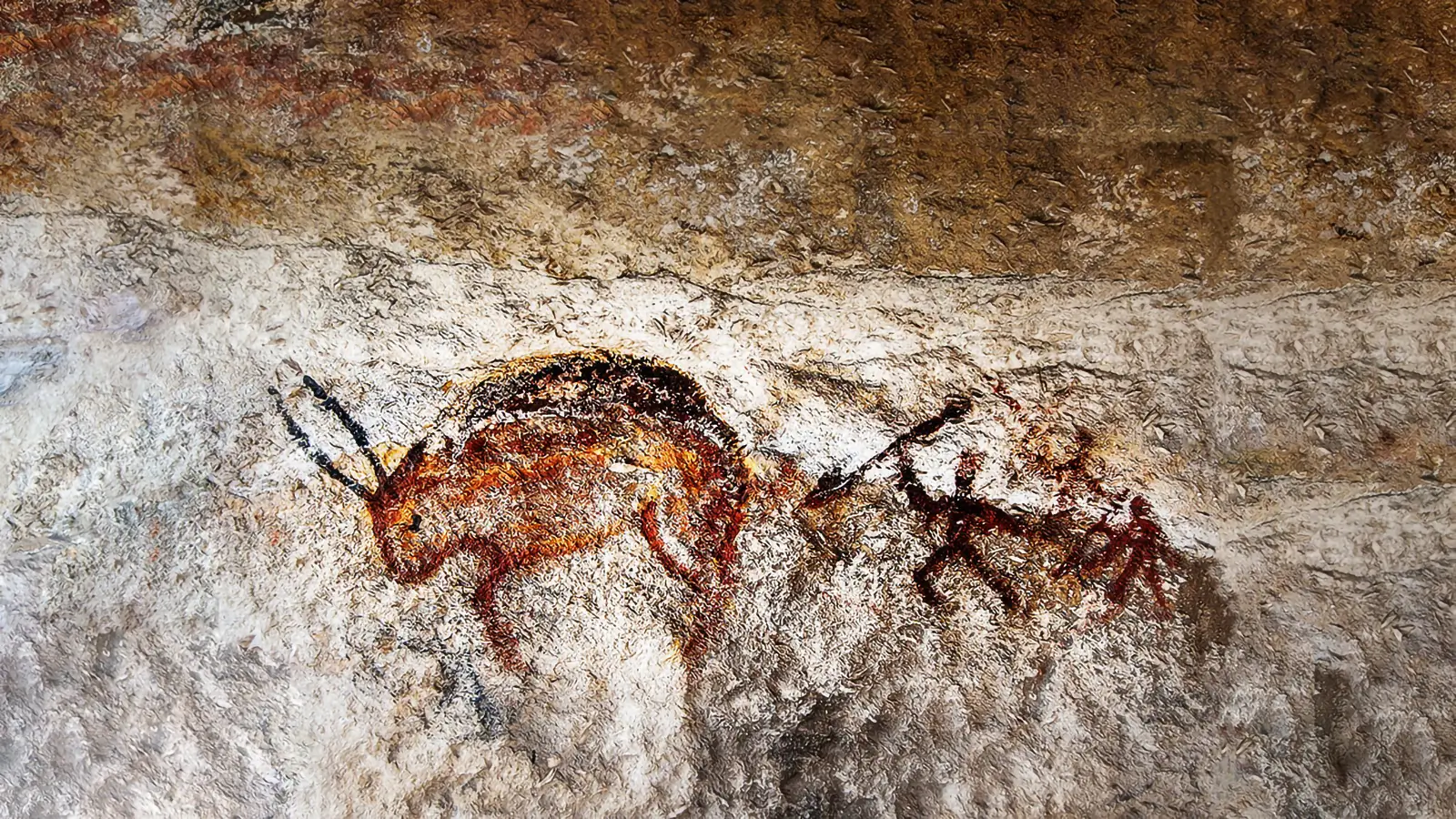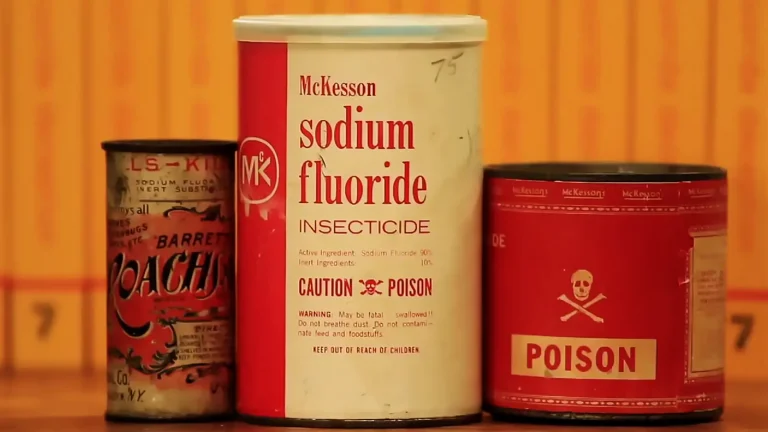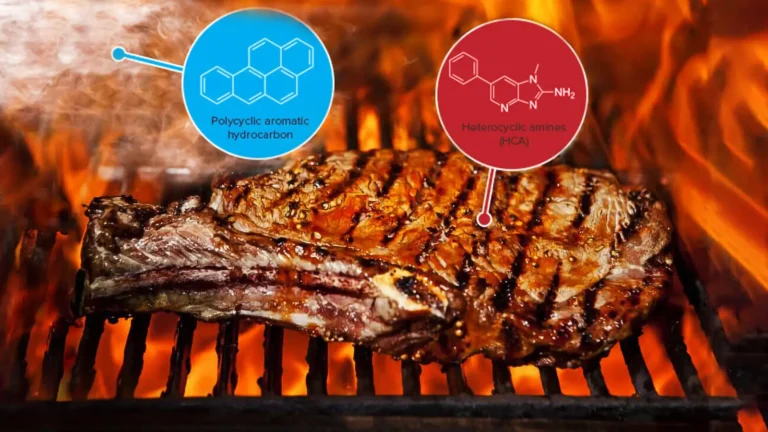Régime Méditerranéen- "Merveille" de l'huile d'Olive
Commercialisé comme une merveille d'huile d'olive, le régime méditerranéen n'a rien à voir avec une huile quelconque, sauf dans la mesure où elle peut remplacer le beurre et le saindoux.
Milos Pokimica
Écrit par : Milos Pokimica
Examiné Médicalement Par : Dr. Xiùying Wáng, M.D.
Mis à jour le 9 juin 2023Le bon vieux régime méditerranéen sain. Commercialisé comme une merveille d'huile d'olive qui n'avait rien à voir avec l'huile de quelque sorte que ce soit, sauf dans la mesure où elle peut remplacer des choix encore pires comme une graisse saturée ordinaire comme le beurre et le saindoux. C'est précisément ainsi que le père du régime méditerranéen l'a vu (Clés, 1987). Lorsque l'on consulte le site pubmed.gov et que l'on recherche un régime méditerranéen, on obtient environ 5 000 résultats. Le régime méditerranéen correspond à de nombreux régimes alimentaires dans de nombreux pays différents. Il peut s'agir du Maroc, de la Grèce, de l'Espagne, de l'Italie ou d'un autre pays.
Cependant, lorsque nous parlons de régime méditerranéen, ce qui est sous-entendu, c'est le régime alimentaire de l'île de Crète à l'époque de l'après-guerre. De plus, ce qui vient ensuite est une grande question: pourquoi les maladies cardiaques étaient-elles rares en Méditerranée ? Signification sur l'île de Crète après la Seconde Guerre mondiale.
En 1948, après la guerre et l'effondrement socio-économique, le gouvernement grec s'est inquiété de la malnutrition et de l'état de santé de ses citoyens. Il décide d'inviter la Fondation Rockefeller à entreprendre une étude épidémiologique sur l'île de Crète. En 1952, impressionné par les faibles taux de maladies cardiaques, Ancel Keys, le même scientifique qui était en charge de l'expérience de famine du Minnesota, a établi un lien entre les graisses, et en particulier les graisses saturées, et les maladies cardiaques, après avoir étudié les données. À l'époque, il ne voyait pas le cholestérol comme le problème, car cela signifierait que les produits d'origine animale sont les coupables. Le lien entre les graisses alimentaires et les maladies cardiaques avait déjà été observé dans les années 1930 et avait influencé les travaux de Keys, mais les données recueillies en Crète l'ont amené à rédiger un article à ce sujet en 1953 et à le rendre public. La célèbre étude des sept pays devait commencer cinq ans plus tard, en 1958, pour répondre aux préoccupations de Keys (www.sevencountriesstudy.com). Dans les années 1960, il était communément admis que les graisses saturées contribuaient aux maladies cardiaques. Le régime alimentaire des habitants de l'île de Crète a été un catalyseur pour cette recherche plus tard. En 1970, l'étude des sept pays a été présentée pour la première fois. Maintenant, Keys a vécu jusqu'à 100 ans et n'était pas à l'époque aussi radical que les confusions de cholestérol voudraient vous le faire croire. Il a recommandé de manger moins de gras, c'est-à-dire de gras dans la viande et de gras en général comme les œufs (ou au moins les jaunes) et les produits laitiers, et au lieu de manger plus de poisson et de poulet. Il considérait les fruits et légumes comme des aliments complémentaires, et il avait un taux de cholestérol d'environ 200. Ce nombre n'est pas sain de loin, mais il a vécu jusqu'à 100. Le problème était qu'il était médecin du même système que n'importe quel autre. autre médecin.
L'artériosclérose est une maladie, pas un processus de vieillissement. Nous pouvons examiner les artères et mesurer la tension artérielle de personnes pauvres dans des endroits comme la Crète. Keys n'a pas vu la vérité sur ce qu'était le vrai régime alimentaire en Crète. Il pensait qu'il ne s'agissait que de graisses et ne voyait pas le problème des protéines animales. Les animaux corrélation protéique a été négligé même dans les charts. Il a brouillé l'eau en pointant juste la graisse.
Cependant, même cela n'était pas suffisant. C'était même exagéré. En 1966, George Campbell et Thomas L. Cleave ont publié "Diabetes, Coronary Thrombosis, and Saccharine Disease". Ils ont fait valoir que les maladies occidentales chroniques telles que les maladies cardiaques, les ulcères gastro-duodénaux, le diabète et l'obésité sont produites par une seule chose: "la maladie des glucides raffinés". C'était une histoire sans fin. Il n'a jamais cessé à ce jour. Tout est un mensonge qui est confronté au mensonge contraire. Guerres et confusion alimentaires créées artificiellement. C'était une bonne stratégie de conception qui n'a rien changé en 70 ans, à l'exception du fait de priver les gens ordinaires d'argent causant des maladies, créant ainsi une boucle maléfique de misère. Même à l'époque actuelle, c'est la même vieille histoire de manipulation. En 2001, par exemple, dans l'article de Science Magazine intitulé "Nutrition: The Soft Science of Dietary Fat", Gary Taubes écrivait:
"La question de savoir si la consommation de graisses saturées au-delà des niveaux recommandés par toute personne qui n'est pas déjà exposée à un risque élevé de maladie cardiaque augmentera la probabilité d'une mort prématurée reste discutable... ou si des centaines de millions de dollars consacrés à des essais ont réussi à produire des preuves convaincantes que des personnes en bonne santé peuvent prolonger leur vie de plus de quelques semaines, le cas échéant, en mangeant moins de graisses."
70 ans plus tard, les gens pensent que le régime méditerranéen est sain grâce à l'huile d'olive. C'est une excellente illustration d'une demi-vérité. Les restaurants italiens se présentent comme des restaurants méditerranéens sains avec des spaghettis carbonara et de l'alcool. À l'époque, le taux de mortalité par maladie cardiaque en Crète était plus de 20 fois, et non 20 %, 20 fois moins élevé qu'aux États-Unis. Les données statistiques recueillies dans des régions comme la Chine rurale, la Crète, Okinawa et bien d'autres montrent que le régime alimentaire de ces populations est simple et similaire à celui des autres. Quel degré de stupidité devons-nous avoir pour ne pas voir la véritable histoire de ce qui se passe ? Les scientifiques ayant un niveau d'éducation considérable ne sont pas les plus stupides. Ils ont des revenus annuels à six chiffres plus des primes. Ils sont intelligents. Nous ne le sommes pas. La science nutritionnelle n'est pas une recherche secrète menée dans les laboratoires souterrains du système de propulsion militaire. Il n'y a pas de véritables débats dans le domaine de la nutrition, mais seulement une volonté de créer une véritable confusion.
Que mangeaient-ils sur l'île de Crète au lendemain de la Seconde Guerre mondiale ? La réponse est la même. Ni viande, ni œufs, ni produits laitiers. Juste des aliments pour pauvres, comme des fruits et des légumes, des céréales, des noix et des légumineuses. Des choses qui poussent localement. En chiffres, ils ont mangé plus de 90% à base de plantes, et la viande, le poisson, les produits laitiers et les produits à base d'œufs combinés représentent environ 7%. Ils mangeaient un peu d'huile d'olive parce que les olives poussent en Crète, mais il ne s'agit pas d'un régime à base d'huile d'olive. Ce n'est pas non plus un régime à base d'huile d'olive ou de vin. Le vin n'a rien de sain, à l'exception du raisin. Il vaudrait mieux se contenter de boire du jus de raisin brut. Si nous regardons la Grèce aujourd'hui, que pensons-nous y trouver ? Elle est la première en Europe pour l'obésité infantile. L'île de Crète en fait partie. Dès que l'économie s'améliore, la viande, le fromage, le sucre et l'alcool arrivent en masse. Et le tabagisme aussi. La Grèce affiche un taux de consommation de tabac supérieur à 40%. Le régime méditerranéen n'était pas un régime méditerranéen local comme la cuisine italienne ou la cuisine grecque. Il s'agissait d'un régime de pauvreté sans viande, sans œufs et sans produits laitiers, semblable aux régimes de tous les pays pauvres ou en guerre, ce que l'industrie n'aime pas mentionner. Les maladies cardiaques étaient rares en Grèce. C'était le cas. Elles ne le sont plus. Et même en Crète, en temps de guerre, certains riches mangeaient "normalement", c'est-à-dire qu'ils mangeaient de la viande tous les jours au lieu d'une fois toutes les deux semaines. Pour eux aussi, les crises cardiaques étaient normales, contrairement au reste des gens du peuple frappés par la pauvreté. Aujourd'hui, plus personne ne suit le vrai régime méditerranéen. Le régime méditerranéen pur d'aujourd'hui, qui est principalement basé sur les plantes, n'est pas un véritable régime alimentaire complet. Il est dominé par la farine blanche, la consommation d'huile et de sel, et l'alcool. En Crète, on ne mangeait pas de pâtes blanches raffinées sortant de l'usine, accompagnées d'une sauce pleine d'huile extraite et de bouteilles de vin. L'alcool est un facteur de risque connu du cancer du sein, même si l'on ne tient pas compte de l'inflammation et de la toxicité. Ce n'est pas un repas bénéfique pour la santé. Enfin, ce n'est pas un repas bénéfique pour la santé si nous ne le comparons pas au repas américain standard d'aujourd'hui, qui est encore pire. Donc, oui, le régime méditerranéen est plus sain que le régime ordinaire, mais pas aussi sain qu'un véritable régime humain naturel, c'est-à-dire un régime à base d'aliments entiers et de plantes. Régime à base d'aliments entiers d'origine végétale.
Le problème est que la nourriture normale ordinaire n'est pas savoureuse car raffinée, pleine de sel et d'huile et sucre et presque personne ne s'y tient. Dès leur plus jeune âge, les enfants reçoivent tous ces produits chimiques que nous considérons comme de la nourriture, de sorte que nous y sommes accoutumés dès l'enfance et que nous n'avons plus de véritable base de comparaison avec ce qu'est la vraie nourriture humaine. C'est pourquoi le régime des pauvres fonctionne. Si l'on fait abstraction du cholestérol, des toxines et des graisses saturées provenant des produits animaux et si l'on analyse les différents éléments du régime alimentaire en Crète, on constate qu'en réalité, ce ne sont pas les céréales qui protègent contre les crises cardiaques. Les céréales étaient plus neutres et, parce qu'il s'agissait d'aliments complets contenant des fibres, elles n'avaient pas d'effet sur l'obésité ou le diabète. Parmi les composants individuels du régime méditerranéen, la consommation de légumes verts et de fruits à coque est celle qui a le plus d'effets sur la réduction du risque de maladie cardiovasculaire. Les végétariens qui mangent des noix ont un risque plus faible de maladie cardiovasculaire que ceux qui n'en mangent pas, et il y a maintenant un certain nombre d'études sur ce sujet également. En voici une (Guasch-Ferré et al., 2013) avec la conclusion: "Une fréquence accrue de consommation de noix était associée à un risque de mortalité significativement réduit dans une population méditerranéenne à haut risque cardiovasculaire."
Les fruits à coque ont une teneur élevée en huile mais aussi en fibres, de sorte que l'huile n'est pas immédiatement absorbée comme la graisse de la viande ou de l'huile raffinée et, contrairement à la viande ou à l'huile, les fruits à coque sont riches en antioxydants et autres substances phytochimiques. Un autre avantage des fruits à coque est qu'en les combinant avec des légumes verts, l'huile augmente l'absorption des substances chimiques liposolubles présentes dans les légumes déjà sains. Il n'est pas nécessaire d'adopter une alimentation pauvre en matières grasses, d'éviter la consommation de fruits à coque et de graines et de privilégier les féculents. Nous devrions manger des féculents, des noix et tous les autres aliments dans la plus grande variété possible. Jusqu'à présent, la science n'a pas établi de corrélation entre une consommation élevée de graines et de noix et une quelconque maladie, y compris l'obésité, sauf chez les personnes souffrant d'allergies. C'est tout le contraire. Elles sont bénéfiques dans presque tous les cas. Les noix du Brésil sont pleines de sélénium, les noix protègent contre le cancer, les lignanes des graines de lin sont l'un des produits chimiques les plus protecteurs contre le cancer du sein et sont également pleines d'huiles oméga-3 pour les fonctions cérébrales. Nos ancêtres mangeaient des noix et des graines crues depuis longtemps. Ce sont nos aliments naturels au même titre que les fruits, les céréales, les jeunes feuilles ou d'autres légumes à feuilles vertes.
Le régime alimentaire sain est celui que nous avions évolué et adapté à l'alimentation. C'est ça.
Références :
- Clés A. (1987). L'huile d'olive et les maladies coronariennes. Lancet (Londres, Angleterre), 1(8539), 983–984. https://doi.org/10.1016/s0140-6736(87)90337-0
- Guasch-Ferré, M., Bulló, M., Martínez-González, M. Á., Ros, E., Corella, D., Estruch, R., Fitó, M., Arós, F., Wärnberg, J. , Fiol, M., Lapetra, J., Vinyoles, E., Lamuela-Raventós, RM, Serra-Majem, L., Pintó, X., Ruiz-Gutiérrez, V., Basora, J., Salas-Salvadó, J., & groupe d'étude PREDIMED (2013). Fréquence de consommation de noix et risque de mortalité dans l'essai d'intervention nutritionnelle PREDIMED. Médecine BMC, 11, 164. https://doi.org/10.1186/1741-7015-11-164
Articles Similaires
Vous avez des questions sur la nutrition et la santé ?
J'aimerais avoir de vos nouvelles et y répondre dans mon prochain post. J'apprécie votre contribution et votre opinion et j'ai hâte d'avoir de vos nouvelles bientôt. Je vous invite également à nous suivre sur Facebook, Instagram et Pinterest pour plus de contenu sur l'alimentation, la nutrition et la santé. Vous pouvez y laisser un commentaire et entrer en contact avec d'autres passionnés de santé, partager vos conseils et expériences, et obtenir le soutien et les encouragements de notre équipe et de notre communauté.
J'espère que ce billet a été instructif et agréable pour vous et que vous êtes prêt à mettre en pratique les connaissances que vous avez acquises. Si vous avez trouvé ce billet utile, veuillez le partager à vos amis et à votre famille qui pourraient également en bénéficier. On ne sait jamais qui peut avoir besoin de conseils et de soutien dans son parcours de santé.
– Vous pourriez aussi aimer –

Apprendre la Nutrition
Milos Pokimica est docteur en médecine naturelle, nutritionniste clinique, rédacteur en santé médicale et nutrition et conseiller en sciences nutritionnelles. Auteur de la série de livres Devenir vegetarien ? Examen des sciences, il exploite également le site Web de santé naturelle GoVeganWay.com
Avis de non-responsabilité médicale
GoVeganWay.com vous propose des critiques des dernières recherches liées à la nutrition et à la santé. Les informations fournies représentent l'opinion personnelle de l'auteur et ne sont pas destinées ni implicitement à remplacer un avis médical professionnel, un diagnostic ou un traitement. Les informations fournies sont fournies à titre informatif uniquement et ne sont pas destinées à remplacer la consultation, le diagnostic et/ou le traitement médical d'un médecin ou d'un prestataire de soins de santé qualifié.NE JAMAIS IGNORER LES CONSEILS MÉDICAUX PROFESSIONNELS OU RETARDER LA RECHERCHE DE SOINS MÉDICAUX EN RAISON DE QUELQUE CHOSE QUE VOUS AVEZ LU OU ACCÉDÉ SUR GoVeganWay.com
N'APPLIQUEZ JAMAIS DE CHANGEMENTS AU STYLE DE VIE OU TOUT CHANGEMENT À LA SUITE DE QUELQUE CHOSE QUE VOUS AVEZ LU SUR GoVeganWay.com AVANT DE CONSULTER UN PRATICIEN MÉDICAL AGRÉÉ.
En cas d'urgence médicale, appelez immédiatement un médecin ou le 911. GoVeganWay.com ne recommande ni n'approuve aucun groupe, organisation, test, médecin, produit, procédure, opinion ou autre information spécifique pouvant être mentionné à l'intérieur.
Choix de l'éditeur -
Milos Pokimica est rédacteur spécialisé dans la santé et la nutrition et conseiller en sciences nutritionnelles. Auteur d'une série de livres Devenir vegetarien ? Examen des sciences, il exploite également le site Web de santé naturelle GoVeganWay.com
Derniers articles –
Top Des Nouvelles Sur la Santé - ScienceDaily
- The overlooked nutrition risk of Ozempic and Wegovyle février 4, 2026
Popular weight-loss drugs like Ozempic and Wegovy can dramatically curb appetite, but experts warn many users are flying blind when it comes to nutrition. New research suggests people taking these medications may not be getting enough guidance on protein, vitamins, and overall diet quality, increasing the risk of muscle loss and nutrient deficiencies.
- A 25-year study found an unexpected link between cheese and dementiale février 4, 2026
A massive Swedish study tracking nearly 28,000 people for 25 years found an unexpected link between full-fat dairy and brain health. Among adults without a genetic risk for Alzheimer’s, eating more full-fat cheese was associated with a noticeably lower risk of developing the disease, while higher cream intake was tied to reduced dementia risk overall. The findings challenge decades of low-fat dietary advice but come with important caveats.
- MIT’s new brain tool could finally explain consciousnessle février 4, 2026
Scientists still don’t know how the brain turns physical activity into thoughts, feelings, and awareness—but a powerful new tool may help crack the mystery. Researchers at MIT are exploring transcranial focused ultrasound, a noninvasive technology that can precisely stimulate deep regions of the brain that were previously off-limits. In a new “roadmap” paper, they explain how this method could finally let scientists test cause-and-effect in consciousness research, not just observe […]
- Why heart disease risk in type 2 diabetes looks different for men and womenle février 4, 2026
Scientists are digging into why heart disease risk in type 2 diabetes differs between men and women—and sex hormones may be part of the story. In a large Johns Hopkins study, men with higher testosterone had lower heart disease risk, while rising estradiol levels were linked to higher risk. These hormone effects were not seen in women. The results point toward more personalized approaches to heart disease prevention in diabetes.
- Sound machines might be making your sleep worsele février 4, 2026
Sound machines may not be the sleep saviors many believe. Researchers found that pink noise significantly reduced REM sleep, while simple earplugs did a better job protecting deep, restorative sleep from traffic noise. When pink noise was combined with outside noise, sleep quality dropped even further. The results suggest that popular “sleep sounds” could be doing more harm than good—particularly for kids.
- This unexpected plant discovery could change how drugs are madele février 3, 2026
Plants make chemical weapons to protect themselves, and many of these compounds have become vital to human medicine. Researchers found that one powerful plant chemical is produced using a gene that looks surprisingly bacterial. This suggests plants reuse microbial tools to invent new chemistry. The insight could help scientists discover new drugs and produce them more sustainably.
- A hidden cellular process may drive aging and diseasele février 3, 2026
As we age, our cells don’t just wear down—they reorganize. Researchers found that cells actively remodel a key structure called the endoplasmic reticulum, reducing protein-producing regions while preserving fat-related ones. This process, driven by ER-phagy, is tied to lifespan and healthy aging. Because these changes happen early, they could help trigger later disease—or offer a chance to stop it.
PubMed, #régime-vegan –
- Diet type and the oral microbiomele février 2, 2026
CONCLUSION: The diet-oral microbiome-systemic inflammation axis is bidirectional and clinically relevant. Understanding both direct ecological regulation and indirect metabolic effects is essential to support precision nutrition strategies aimed at maintaining oral microbial balance and systemic inflammatory risk mitigation.
- Consensus document on healthy lifestylesle janvier 22, 2026
Proteins are a group of macronutrients that are vital to our lives, as they perform various functions, including structural, defensive and catalytic. An intake of 1.0-1.2 g/kg/body weight per day would be sufficient to meet our needs. Carbohydrate requirements constitute 50 % of the total caloric value and should be obtained mainly in the form of complex carbohydrates. In addition, a daily intake of both soluble and insoluble fiber is necessary. Regular consumption of extra virgin olive oil […]
- Vitamin B12 and D status in long-term vegetarians: Impact of diet duration and subtypes in Beijing, Chinale janvier 21, 2026
CONCLUSIONS: This study reveals a dual challenge among Beijing long-term vegetarians: vitamin B12 deficiency was strongly associated with the degree of exclusion of animal products from the diet (veganism), while vitamin D deficiency was highly prevalent and worsened with longer diet duration. The near-universal vitamin D deficiency observed in this study suggests that, in the Beijing context, the risk may extend beyond dietary choice, potentially reflecting regional environmental factors;…
- Nutritional evaluation of duty meals provided to riot police forces in Germanyle janvier 13, 2026
Background: The primary role of the German riot police is maintaining internal security. Due to challenging working conditions, riot police forces face an elevated risk of various diseases. During duty, forces are provided with meals. A balanced diet can reduce the risk of some of these diseases and contribute to health-promoting working conditions. Aim: First evaluation of the nutritional quality of duty meals in Germany based on German Nutrition Society recommendations (DGE). Methods: In…
- Iodinele janvier 1, 2006
Iodine is an essential trace nutrient for all infants that is a normal component of breastmilk. Infant requirements are estimated to be 15 mcg/kg daily in full-term infants and 30 mcg/kg daily in preterm infants.[1] Breastmilk iodine concentration correlates well with maternal urinary iodine concentration and may be a useful index of iodine sufficiency in infants under 2 years of age, but there is no clear agreement on a value that indicates iodine sufficiency, and may not correlate with […]
Messages aléatoires –
Postes en vedette -
Dernières Nouvelles de PubMed, #alimentation végétale –
- From paddy soil to dining table: biological biofortification of rice with zincpar Lei Huang le février 4, 2026
One-third of paddy soils are globally deficient in zinc (Zn) and 40% of Zn loss in the procession from brown rice to polished rice, which results in the global issue of hidden hunger, e.g., the micronutrient deficiencies in the rice-based population of developing countries. In the recent decades, biofortification of cereal food crops with Zn has emerged as a promising solution. Herein, we comprehensively reviewed the entire process of Zn in paddy soil to human diet, including the regulatory…
- Molecular Characterization of Tobacco Necrosis Virus A Variants Identified in Sugarbeet Rootspar Alyssa Flobinus le février 3, 2026
Sugarbeet provides an important source of sucrose; a stable, environmentally safe, and low-cost staple in the human diet. Viral diseases arising in sugarbeet ultimately impact sugar content, which translates to financial losses for growers. To manage diseases and prevent such losses from occurring, it is essential to characterize viruses responsible for disease. Recently, our laboratory identified a tobacco necrosis virus A variant named Beta vulgaris alphanecrovirus 1 (BvANV-1) in sugarbeet…
- Nutrition in early life interacts with genetic risk to influence preadult behaviour in the Raine Studypar Lars Meinertz Byg le février 3, 2026
CONCLUSIONS: Nutrition in early life and psychiatric genetic risk may interact to determine lasting child behaviour. Contrary to our hypothesis, we find dietary benefits in individuals with lower ADHD PGS, necessitating replication. We also highlight the possibility of including genetics in early nutrition intervention trials for causal inference.
- Effect of the gut microbiota on insect reproduction: mechanisms and biotechnological prospectspar Dilawar Abbas le février 2, 2026
The insect gut microbiota functions as a multifunctional symbiotic system that plays a central role in host reproduction. Through the production of bioactive metabolites, gut microbes interact with host hormonal pathways, immune signaling, and molecular regulatory networks, thereby shaping reproductive physiology and fitness. This review summarizes recent advances in understanding how gut microbiota regulate insect reproduction. Accumulating evidence demonstrates that microbial metabolites…
- Rationale and design of a parallel randomised trial of a plant-based intensive lifestyle intervention for diabetes remission: The REmission of diabetes using a PlAnt-based weight loss InteRvention…par Brighid McKay le février 2, 2026
CONCLUSIONS: This trial will provide high-quality clinical evidence on the use of plant-based ILIs to address the epidemics of obesity and diabetes to inform public health policies and programs in Canada and beyond.
- Diet type and the oral microbiomepar Daniel Betancur le février 2, 2026
CONCLUSION: The diet-oral microbiome-systemic inflammation axis is bidirectional and clinically relevant. Understanding both direct ecological regulation and indirect metabolic effects is essential to support precision nutrition strategies aimed at maintaining oral microbial balance and systemic inflammatory risk mitigation.

















